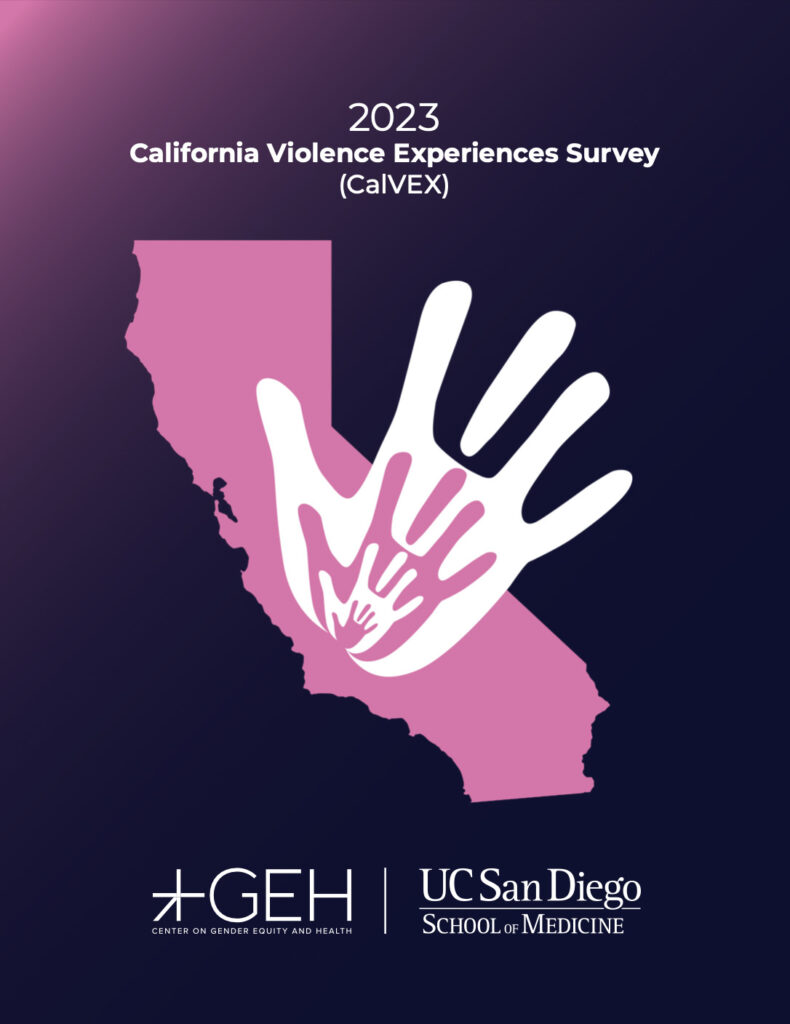Non-binary and transgender Californians suffer more violence: Survey
An annual survey of physical and sexual violence suffered by Californians documents for the first time the higher incidence of violence among non-binary and transgender people.
One in 20 California adults has experienced physical violence (5%) in the past year, a decrease from 8% in 2022, according to The California Violence Experiences Study (CalVEX); but the reported rates for non-binary and transgender individuals were notably higher, 14% and 27%, respectively.
“The new data we have in this year’s report show that rates of violence have declined since levels seen during the pandemic, but these experiences remain too common, especially for our gender diverse and sexually diverse communities,” said Anita Raj, PhD, MS, Affiliate Professor at University of California San Diego and executive director of the Newcomb Institute at Tulane University.
“These data have historically lacked information on non-binary and transgender individuals, so we have not had a clear picture of their experiences with violence until now.”

The fourth annual CalVEX survey, covering more than 3,500 adults, also found that one in 11 adults (9%) said that they have been a victim of sexual harassment or assault in the past year, a decrease from 11% in 2022. Past year sexual harassment and assault reported by non-binary and transgender adults was egregiously higher, at 56% and 40%, respectively.
Overall, more than half of all adults in California reported physical or sexual partner violence (54%) against them in their lifetime. Women (54%), non-binary individuals (76%), and transgender individuals (83%) are more likely than men (38%) to have experienced this.
The CalVEX survey also collected data on the rates and occurrences of violence and mental health and found significant effects associations.
Those who experienced physical violence in the past year were:
- More than twice as likely to report severe depression and/or anxiety symptoms (14% vs 6%)
- Four times more likely to report serious consideration of suicide (25% vs 6%)
- More than twice as likely to report recent substance misuse (67% vs 28%)
Those who experienced sexual harassment or assault in the past year were:
- More than twice as likely to report severe depression and/or anxiety symptoms (14% vs 6%)
- Four times more likely to report serious consideration of suicide (22% vs 5%)
- Nearly twice as likely to report recent substance misuse (51% vs 28%)
The study also examined racial/ethnic disparities and economic disparities among those affected by violence and found higher rates of violence among minority and economically distressed people.
“Experiences of violence are affected by gender, and we need to consider the unique vulnerabilities to violence that people face due to their gender as we build our violence prevention efforts,” said Raj.
“Our goal with these data is to guide violence-prevention programming and policy development, recognizing the gendered risk attached to it and the socio-economic and health disparities.”
Overwhelmingly, most people who experienced violence did not report it to authorities: 80% of those who experienced physical violence and 95% of those experiencing sexual violence. This suggests that people may feel that there is no benefit to seeking support or recourse. Some may even be concerned that help-seeking could yield further problems for them.
The survey asked Californians about their most recent experience of being approached or stopped by the police. One in eight (12%) said they were treated somewhat or very badly, as reported by 11% of women and 13% of men. The survey also found that one factor discouraging the reporting of violence to the police was that 1 in 25 respondents (4%) said they were victims of police violence.
“This suggests that criminal justice responses may not be useful in addressing violence,” said Raj. “Health and social welfare services such as conflict-resolution training and support services for families and youth may be a better means of serving victims and preventing perpetration, given the vulnerabilities faced by victims and that most perpetrators are victims as well.”
The survey was conducted online by NORC at the University of Chicago on behalf of University of California San Diego’s Center on Gender Equity and Health (GEH) from March to May 2023.
More information about the study is available here.
About the California Violence Experiences Study
The California Violence Experiences Study (CalVEX) provides insight into the current state of violence and discrimination for adult California residents. The survey provides timely population-level estimates on physical violence, inclusive of knife and gun violence, as well as a range of sexual violence experiences, inclusive of harassment, coercion, and forced sex. NORC at the University of Chicago conducted the online CalVEX survey on behalf of the University of California San Diego’s Center on Gender Equity and Health (GEH). 3,560 California adult residents ages 18+ were surveyed from March 2023 to May 2023.






